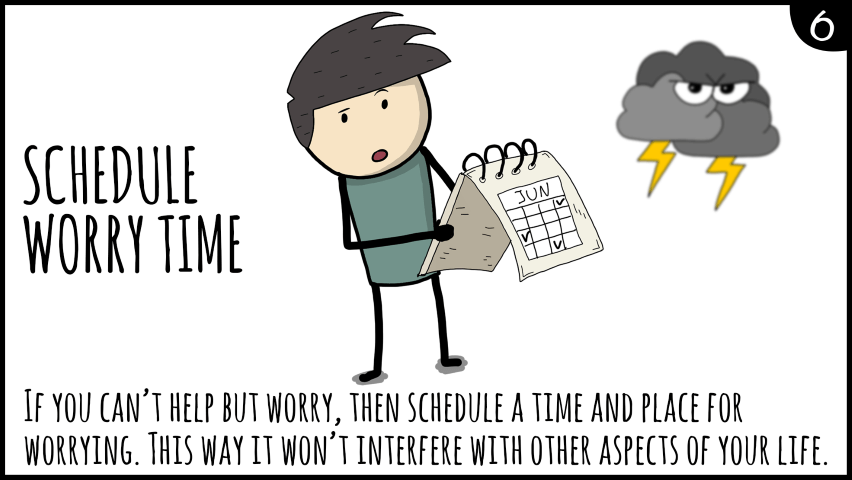How To Help An Anxious Child | Child Anxiety Treatment
Table Of Interest
Today, you and I will quickly take a look at the topic “How To Help An Anxious Child | Child Anxiety Treatment”.
This has become necessary as we have sen overtime that several individuals have been searching for topics related to the above topic How To Help An Anxious Child | Child Anxiety Treatment.
However, if you are among those that have been searching for answers to [how to help a child with anxiety in the classroom, child anxiety treatment, child anxiety test, child anxiety symptoms, how to help a child with anxiety about school, anxiety in children under 10, anxiety in children symptoms checklist, child anxiety treatment at home, How To Help An Anxious Child | Child Anxiety Treatment], then you can see that you are not the only one.
Nonetheless, you shall get all this information right here on this blog.
How To Help An Anxious Child | Child Anxiety Treatment
Why is my child anxious or worried? What is wrong with him/her? What is anxiety?

According to Google the meaning of anxiety is the following
worry'w?ri/verb
1.feel or cause to feel anxious or troubled about actual or potential problems."he worried about his soldier sons in the war"synonyms:fret, be worried, be concerned, be anxious, agonize, brood, dwell on, panic, get in a panic, lose sleep, get worked up, get in a fluster, get overwrought, be on tenterhooks; More
2.annoy or disturb."the noise never really stops, but it doesn't worry me"synonyms:trouble, bother, cause anxiety, make anxious, disturb, distress, upset, concern, disquiet, discompose, fret, agitate, unsettle, perturb, frighten, alarm, scare, fluster, flurry, stress, strain, tax, harass, torment, plague, bedevil, besiege, irk, vex; More
noun
1.the state of being anxious and troubled over actual or potential problems."they are in constant worry, for themselves as well as for their children"synonyms:anxiety, disturbance, perturbation, trouble, bother, distress, concern, care, upset, uneasiness, unease, disquiet, disquietude, disconcertment, fretfulness, restlessness, nervousness, nerves, agitation, edginess, tension, tenseness, stress, strain; More
If you look at the meaning you can now understand why a child will feel anxious or worried. There can be a feeling of the unknown, a feeling that they do not know how something will play out – How will they do in a test? Will people accept them? Will someone speak to them at a party etc.
It can be very upsetting for children to feel anxious. What can you as a parent do?
1 in 8 children suffer from anxiety and this can cause things like missing school, not having friends, not having any interests in social gatherings and keeping themselves away from situations and people.
There is not one solution that will fit all children and you as a parent will know your child and in time figure out the best way to help them deal with their anxiety.
Reassuring your child
In your mind you think that if you tell your child that everything is going to be ok, or you are there they do not have to be afraid, it will solve the problem.
This does not always work, because even though your child would love to listen and respond to your reassurance, his/her brain is not allowing it at that moment, because in his/her mind things are really bad and their emotional side of their brain has taken over.
You will have to take another approach than just reassuring your child. Try the following:
Help your child to take a few deep breaths. Reassure them that you understand why they are feeling anxious and there is nothing wrong with feeling that way.
If your child is calmer you can now help him/her to find a solution to the problem that caused the anxiety in the first place. You as a parent must not feel guilty and feel that it is your fault that your child experiences anxiety if you are the one trying to help them.
Tell them that it is fine to worry
- IIE Study Abroad Scholarships | Study Abroad Scholarships
- Google & Bertelsmann Fund 75,000 New Udacity Scholarships In Europe
- 4 Year Scholarships | List Of Full Ride Scholarships
- All Harvard University Scholarships
- Scholarships For Psychology Major | Psychology Scholarships
- Scholarships For African American Students | African American Scholarships
- Asian American Scholarships | Japanese American Scholarships

Do not be that parent that makes your child feel as thought something is wrong with them. Explain to them that to worry about things are normal, and we all do it.
But the secret is working through the worrying and not letting it stop you to do the things your are suppose to do or miss out on things that you can enjoy.
Sometimes we just have to except that we will worry about certain things and understand that we cannot always control a situation or do something about it and just accept the outcome.
Create some worry time

Some children will be paralysed by worrying or anxiety and will not be able to carry on with daily tasks. It is important that your child understand that you cannot spend your whole life worrying.
You can create a special time during the day for 10-15 minutes in which your child can write down all their fears and anxieties and then you can discuss it afterwards and try and find some solutions for the problems.
Help them to stop asking “what if” questions

Help your child to stop concentrating on the negative scenarios of “what if”. We cannot foresee the future but thinking about every single thing that can go wrong will make anybody anxious. Rather help your child to think “what is”. What is the reality? What is it I would like to do? What is it I like about doing a specific activity?
Stop avoiding all situations that causes your child anxiety. Help them to face their fears one step at a time and see for themselves that things will work out and if something does not work the way they thought it would, they can deal with it.
Avoiding all situations is not going to help your child to grow stronger and more self-assured and positive so that they can face their problems.
Work out a step by step plan in which your child will be able to deal with anxiety. Different steps will work for different children
Most of all be compassionate – make sure your child knows that you are there for them and if they worry or feel anxious they can come and talk to you to help them sort out the problem or help them get over their fears.
That’s the much we can take on the topic “How To Help An Anxious Child | Child Anxiety Treatment”.
Thanks For Reading
See Other Articles Others Are Reading
- History As A Science | What Makes History A Science
- Fire And Safety | Basic Fire Safety Tips & Fire Safety Rules
- Myths Surrounding Exercises | All You Need To Know Concerning Exercises.
- Criminal Profiling – Facts Over Fiction | Criminal Profiling Techniques
- 5 Tips For Students Who Are Considering Graphic Design As A Career.
- Evaluation Of Learning: How To Know If The Children Are Learning

Leave a Reply